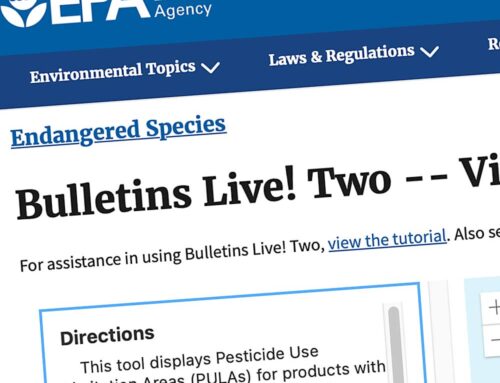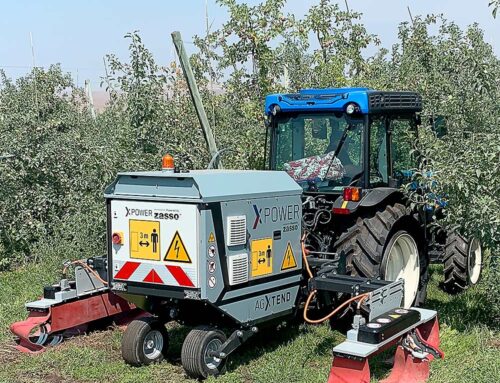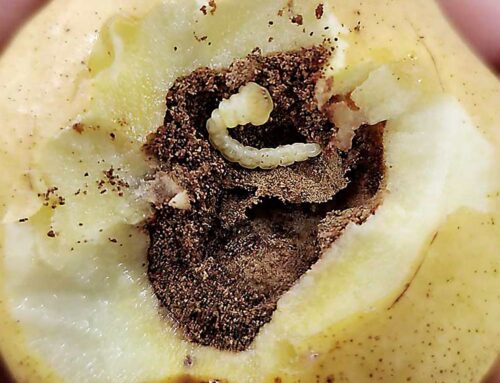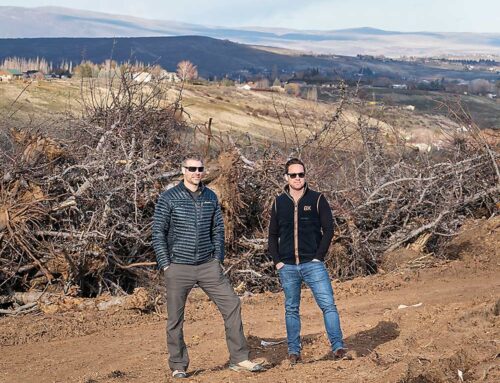Organic herbicides don’t match mulch for pear growers.
That’s the conclusion of University of California Cooperative Extension farm advisor John Roncoroni, who determined through a series of trials that mulches hold back weeds in organic pear orchards better than organic-approved herbicides.
“Available organic herbicides are relatively ineffective, especially for perennial weeds, but can reduce weed growth to tolerable levels with multiple applications,” he wrote in a report to the California Pear Advisory Board.
Roncoroni, a Napa County farm advisor, tested three organic herbicides in a young orchard in Kelseyville, California, about 120 miles northwest of Sacramento.
He compared the results against and in combination with traditional tree mulch, a mulch mat made from recycled paper and no treatments at all for a control. The three herbicides were acetic acid; BioLink, a caprylic and capric acid-based product now named Suppress; and Matratec, a clove oil product.
He came away with three major findings:
—Organically registered herbicides are ineffective as a standalone form of weed control, and a second year of treatments did not improve effectiveness.
—Mulch derived from wood chips or shredded paper is a more effective form of organic weed control.
—Organic herbicides provided little, or no, long-term improvement to mulch treatments.
In Roncoroni’s trials, a water-porous mat made from recycled paper worked the best, providing a 6.5 level of weed control on a visual rating scale of one to 10.
Tree mulch alone came in second with a 4.25 level of control. Combined, the mulch and mat were less than the sum of their parts, yielding 3.5 level control because the mulch caused the mat to break down, Roncoroni said in a follow-up email to Good Fruit Grower.
The three herbicides ranged from 2.25-2.75, barely higher than no treatment at all.
“Organic herbicides have not as yet proven to be a reliable, cost-effective standalone weed control solution in orchard crop production, and provided little, or no, long-term improvement to mulch treatments,” Roncoroni wrote in the 2012 report. Roncoroni conducted the research in 2011 and 2012. •
– by Ross Courtney






How tall were the weeds controlled by the three herbicides? Organic herbicides work very well as long as the weeds are shorter than six inches. If weeds are sever twelve inches, these herbicides do not work well.